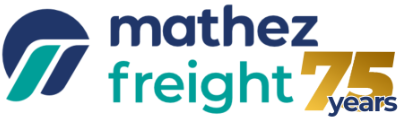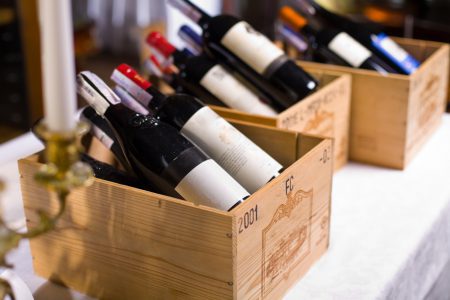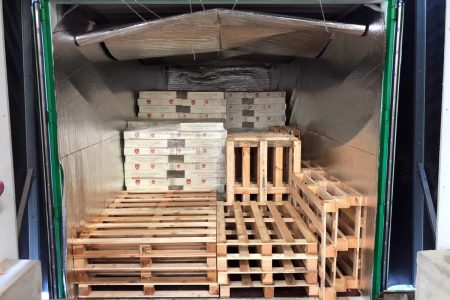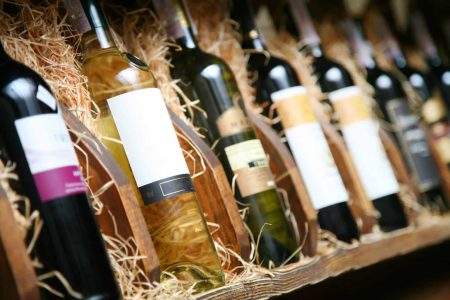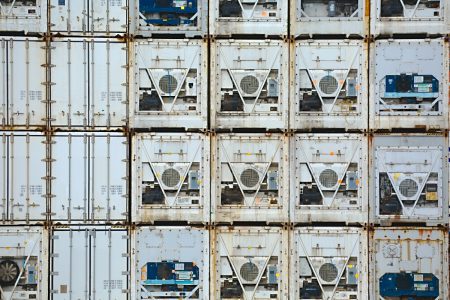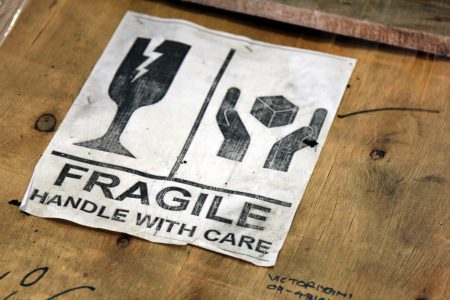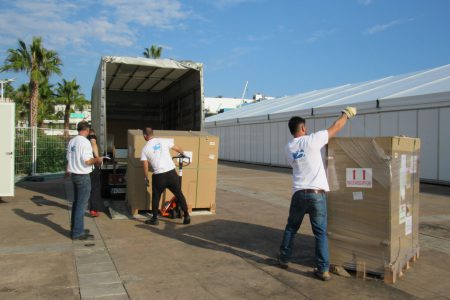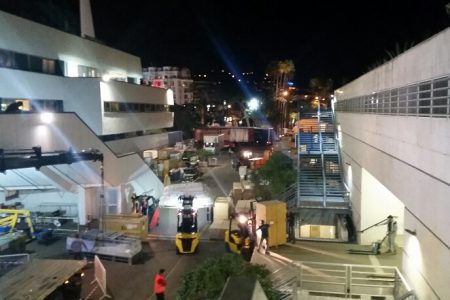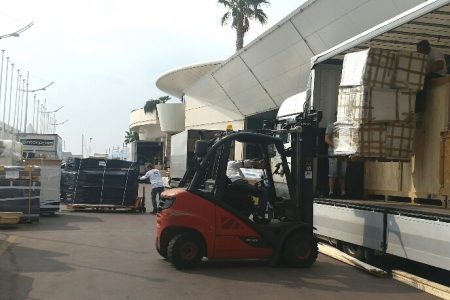
Import / export of French wines, alcohol, and spirits
Do you wish to export French wine to China, Asia, Latin America or elsewhere in the world? Now, there are shipping solutions for wine and spirits specially adapted to your markets.
-
Pick-up from the estate: we pick up your merchandise (wine and spirits) directly from the vineyards, producers, distributors, and agents throughout France.
-
Ocean freight shipment: groupage (LCL), full containers (FCL) or consolidation (LCL/FCL and FCL/LCL), and departure from Le Havre or Fos-sur-Mer to destinations around the world.
-
Air freight shipment: groupage departing from the main airports of France.
-
Logistics for wine and spirits: packaging and handling, secured and bonded customs warehousing.
-
Quality preservation: temperature, cleanliness, and humidity control, isothermic coverage systems, isothermic kits, refrigerated warehouses, and controled temperature containers (“reefer“).
-
Advising: we can advise you with respect to customs issues and the choice of incoterms.
Please note: we only accept requests from registered companies.

Wine has different tastes because of different origins, processes, prices etc…
From the cheapest transportation (flexitank) to priority climate-control air freight container: we provide a wild range of customized solutions as we know and understand the product.
You'll benefit from
Quality assured
Negotiated tariffs
International Network
Customs compliance
Specialists in exhibitions & conventions
Request a freight quote
Frequently asked questions about import / export of wines and spirits
- 1
How do you regulate the temperature of wine when shipping it internationally?
The conditions for shipping and warehousing wine are an important quality factor, because wine requires humidity and temperature conditions that are as constant as possible - ideally between 14 and 15°C.
During shipment, without air conditioning, the bottles could be exposed to extreme temperatures, whether by truck or especially by ship: temperatures can reach 50ºC or -10ºC, over the course of long shipments - it takes about 12 days to reach New York, 30 for San Francisco, 35 for China, and 40 days to reach Australia.
MATHEZ FREIGHT offers solutions that are suitable to thecontrol of temperature when shipping wine:
- Thermal coverage systems (iso kits) for ground shipment,
- Reefer containers for ocean cargo: these are thermally sealed containers which are fitted with a temperature control device to preserve the quality of the wine during transfer at port terminals as well as along the journey.
Please note: containers placed in the hold are much less susceptible to temperature variations than containers loaded on deck because water buffers them from temperature variations. - Isothermic kits for air freight. Only 1% of wine shipments are done by air.
- 2
Which administrative documents are required to ship wine, alcohol, and tobacco products?
During shipment, products subject to excise duty must be accompanied by European Union administrative documents specifying the fiscal status of the product:
- the electronic administrative document (EAD) for products under excise duty suspension arrangements, in place since 2011 as part of the European EMCS (Excise Movement and Control System) project and its French affiliate GAMMA. To create this document, the shipper has to put in place a financial guarantee that assure duty payments; the intended recipient has to create a certificate of receipt (audit).
- the simplified accompanying document for products for which duties have already been paid.
MATHEZ FREIGHT oversees the creation of documents needed for shipping products subject to excise taxes.
- 3
What are excise taxes?
Excise taxes on alcohol and tobacco products are consumption duties, which must be paid in the country in which these products are consumed. These are not standardized across the European Union, as each member state is free to establish its own taxation methods and rates.
Excise duties are assessed whether products are manufactured locally or imported (as opposed to customs duties), and apply to quantity rather than to a value (unlike customs duties and VAT).
- 4
What is the excise policy within the European Union and in France?
European regulations on excise were introduced with the enactment of the Common Market in 1993 and were modified by the Directive 2008/118/CEE which entered into force in 2010.
- It applies to alcohol and alcoholic drinks, manufactured tobacco and mineral oils, and it allows member states to apply excise duties to other products as the case may be.
- Each country is free to establish its own fiscal policies. The amount of excise duties in each of the member states is available online on the site ec.europa.eu website of the European Commission.
- Excise duties are paid by the final operator of the commercial chain and are reflected in the price of retail sale.
Community regulation provides for strict fiscal control over the entire process for wine, alcohol, and other alcoholic beverages, from their production (or importation) to their sale to the end consumer. This control is based on two elements:
- electronic documents for circulation within the European community.
- a storage and circulation under suspension regime. Operators that store or distribute alcohol and / or tobacco within the European Union (EU) need to have a special status - certified warehousing, registered recipient ... - to perform their operations under suspension of payment of excise duties.
With respect to excise duties in France:
- French regulations incorporate the community provision within the general tax code in articles 302B and following. It provides for additional excise duties on spirits with high alcohol content (higher than 18 proof), on "premixes" (mixture of alcohol and soda) and on tobacco products, for use by health insurance funds.
- Excise duties are paid by the Customs Administration, which is authorized to conduct controls and as the case arises to apply appropriate duties by assessing significant penalties. Operators are required to comply strictly with the requirements of excise regulations.
- Excise duties are reevaluated every year.
- 5
What about excise duties in Monaco?
Monaco is considered to be part of the territory of the European Union in that matter Companies established in Monaco are required to pay French excise duties.
Located in both France and Monaco, MATHEZ FREIGHT manages your shipment's excise duties in both France and Monaco, in Italy, and beyond.
- 6
Why is it advisable to call upon the services of a shipping agent with Warehousing Certification for excise duties?
A Certified Warehousing Agent is a physical person or corporate entity authorized by the competent authorities of a member state to produce, transform, hold, ship, and receive products subject to excise duties.
Products subject to excise duties must be accompanied during shipping by EU administative documents to allow for circulation. Only companies with an excise duty number can issue the circulation document known as the "Accompanying Administrative Document" .
Logisticians and shipping agents who transport products subject to excise duties in suspension or have paid excise duties above a certain theshold should therefore obtain a certified warehousing certification, pay a deposit for the duties at issue, and fill out various mandatory declarations.
MATHEZ FREIGHT in Nice has had Certified Warehousing status since 2004.
- 7
Why choose a certified AEO-Full shipping agent?
The "AEO" accreditation (Authorized Economic Operator) is awarded by the Customs Administration to companies that meet strict customs criteria and can demonstrate their continuous quality, conformity, and reliability across the international logistics chain.
Working with an "AEO-Full" shipping agent means that in shipping your goods you'll benefit from the following advantages:
- Streamlining your customs operations
- Physical and records inspections reduced and adapted for your goods,
- Status recognized throughout the European Union and worldwide
Since 2013, MATHEZ FREIGHT has had AEO-Full status, including the AEO certificate for "simplified customs" and the AEO certificate for "safety and security".
When you work with MATHEZ FREIGHT, you can rest assured that all your customs operations throughout the EU and beyond will be handled with precision, reliability, and professionalism, according to the highest standards.
